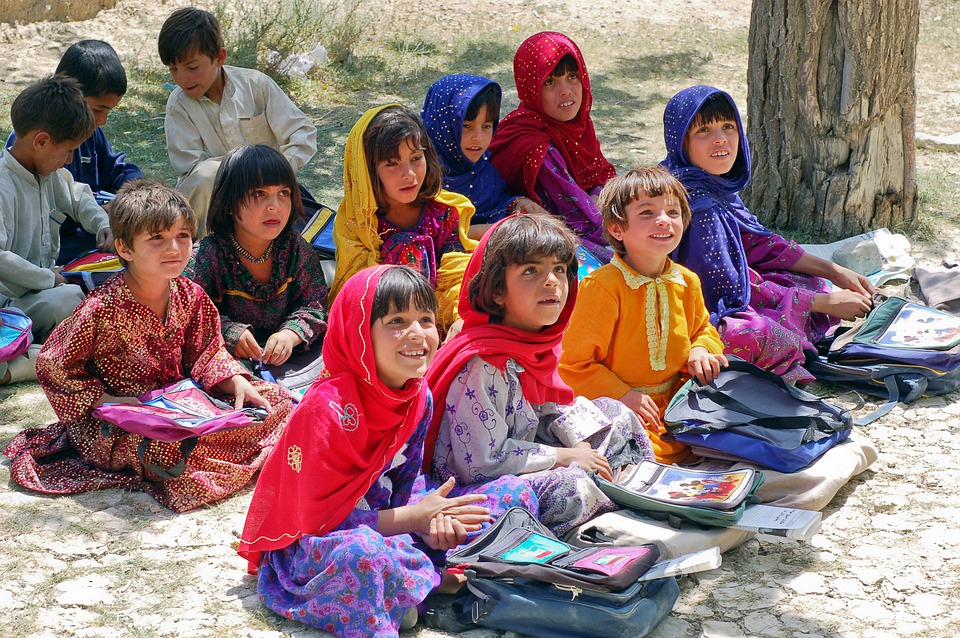The United Nations has gotten increasingly concerned over the Taliban's restrictive policies on women and girls in Afghanistan. Over the weekend, the UN called for the insurgent group leaders to reopen schools for Afghan girls.
The UN said Sunday that it is calling on the Taliban to reopen high schools for girls, expressing concern that further restricting women and girls would only worsen the country's economic crisis. The UN criticized the Taliban in what marked the anniversary of shutting down girls' schools in the country as "shameful."
"This is a tragic, shameful, and entirely avoidable anniversary," said the UN Afghanistan mission's deputy head Markus Potzel. "The ongoing exclusion of girls from high school has no credible justification and has no parallel anywhere in the world. It is profoundly damaging to a generation of girls and to the future of Afghanistan itself."
"A year of lost opportunity that they will never get back," said UN Secretary-General Antonio Guterres Sunday. "Girls belong in school. The Taliban must let them back in."
Since taking over Afghanistan, the insurgent group has implemented restrictive policies on Afghan women and girls. Such policies include that women and girls must be covered from head to toe, with girls still barred from attending school.
So far, the Taliban has failed to deliver on its promises to allow girls to return to school. The ban enforced by the insurgent group targets girls of classes seven to 12, which affects 12 to 18-year-old girls.
The Taliban has reopened schools for boys, however. According to the UN, over one million girls were barred from attending high school in the past year.
The US Treasury issued a statement Wednesday last week, announcing that $3.5 billion of assets of the Afghan central bank will be moved to the Swiss-based trust The Afghan Fund. The trust would be used to help the Afghan people while protecting the funds from being seized by the insurgent group.
The funds would help pay for key imports like electricity, as well as cover debt payments to international financial establishments and fund the printing of a new currency.



 Nighttime Shelling Causes Serious Damage in Russia’s Belgorod Region Near Ukraine Border
Nighttime Shelling Causes Serious Damage in Russia’s Belgorod Region Near Ukraine Border  Trump’s Inflation Claims Clash With Voters’ Cost-of-Living Reality
Trump’s Inflation Claims Clash With Voters’ Cost-of-Living Reality  TrumpRx Website Launches to Offer Discounted Prescription Drugs for Cash-Paying Americans
TrumpRx Website Launches to Offer Discounted Prescription Drugs for Cash-Paying Americans  Jack Lang Resigns as Head of Arab World Institute Amid Epstein Controversy
Jack Lang Resigns as Head of Arab World Institute Amid Epstein Controversy  Norway Opens Corruption Probe Into Former PM and Nobel Committee Chair Thorbjoern Jagland Over Epstein Links
Norway Opens Corruption Probe Into Former PM and Nobel Committee Chair Thorbjoern Jagland Over Epstein Links  Trump Says “Very Good Talks” Underway on Russia-Ukraine War as Peace Efforts Continue
Trump Says “Very Good Talks” Underway on Russia-Ukraine War as Peace Efforts Continue  US Pushes Ukraine-Russia Peace Talks Before Summer Amid Escalating Attacks
US Pushes Ukraine-Russia Peace Talks Before Summer Amid Escalating Attacks  India–U.S. Interim Trade Pact Cuts Auto Tariffs but Leaves Tesla Out
India–U.S. Interim Trade Pact Cuts Auto Tariffs but Leaves Tesla Out  U.S. to Begin Paying UN Dues as Financial Crisis Spurs Push for Reforms
U.S. to Begin Paying UN Dues as Financial Crisis Spurs Push for Reforms  South Korea Assures U.S. on Trade Deal Commitments Amid Tariff Concerns
South Korea Assures U.S. on Trade Deal Commitments Amid Tariff Concerns  Trump Signs Executive Order Threatening 25% Tariffs on Countries Trading With Iran
Trump Signs Executive Order Threatening 25% Tariffs on Countries Trading With Iran  Trump Allows Commercial Fishing in Protected New England Waters
Trump Allows Commercial Fishing in Protected New England Waters  Ohio Man Indicted for Alleged Threat Against Vice President JD Vance, Faces Additional Federal Charges
Ohio Man Indicted for Alleged Threat Against Vice President JD Vance, Faces Additional Federal Charges  Iran–U.S. Nuclear Talks in Oman Face Major Hurdles Amid Rising Regional Tensions
Iran–U.S. Nuclear Talks in Oman Face Major Hurdles Amid Rising Regional Tensions  Netanyahu to Meet Trump in Washington as Iran Nuclear Talks Intensify
Netanyahu to Meet Trump in Washington as Iran Nuclear Talks Intensify  Trump Backs Nexstar–Tegna Merger Amid Shifting U.S. Media Landscape
Trump Backs Nexstar–Tegna Merger Amid Shifting U.S. Media Landscape  Pentagon Ends Military Education Programs With Harvard University
Pentagon Ends Military Education Programs With Harvard University 































